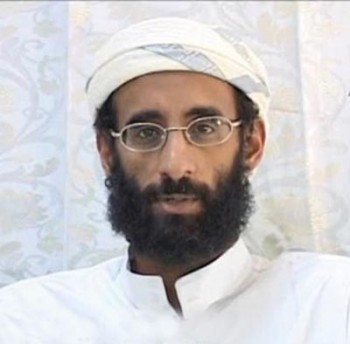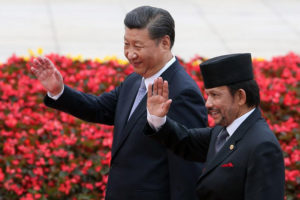
Sept 30 2010
Last month, civil liberties groups and the family of Islamic cleric Anwar al-Awlaki filed suit to stop the US government from killing Mr. Awlaki – an American citizen living abroad in Yemen. The government, which is trying to have the case dismissed, labels Mr. Awlaki a threat for alleged involvement in terror plots and inspiring anti-American jihadists. Awlaki is believed to be a target for extrajudicial killing.
The suit raises a fundamental question: When, if ever, is it lawful for government to assassinate? While a private individual has no right to kill except in self-defense, the right of those acting under color of law, such as police officers, soldiers, or the CIA, is considerably more complex. Even a soldier in a declared war does not have an unfettered right to kill the enemy.
The Nuremberg standard
At the close of World War II, when the question arose of what to do with Nazi leaders. British Prime Minister Winston Churchill proposed shooting them. Soviet leader Joseph Stalin agreed, but the United States advocated a trial. It argued, and eventually persuaded, both British and Soviet governments that the proper path was not blind retaliation, but the rule of law. A lawful procedure required a finding of individual guilt before punishment could be implemented. The US argued that leaders of the German and Japanese government and military should be tried in a court of law for having waged an aggressive war and for crimes against humanity. Only if they were found guilty after a trial, at which they would have the right to defend themselves and present evidence, could they be punished.
The US position prevailed, and the Nuremberg and Tokyo trials set an historic postwar gold standard for what came to be called the movement for the rule of law. The core doctrine is that government itself must obey the law on the same basis as individuals.
The doctrine has been embraced by every US administration since 1945, but America has had difficulty adhering to it.
Twenty-five years after the Nuremberg trials, the CIA sought to assassinate Cuban leader Fidel Castro. This breach was mended in 1976 when President Ford made an Executive Order forbidding any government employee from engaging in assassination. That policy lasted until 2002 when President Bush told the CIA to assassinate terrorist leaders whose names were on a ‘high value target list’. How one got either on or off the list was never made clear.
No due process for Awlaki
By allegedly authorizing the assassination of Awlaki, an American citizen living in Yemen, the current administration shows that American policy has not yet returned to the Nuremberg standard. The key fact in the administration’s decision seems to be that Awlaki resides in Yemen. If the citizen resided in Chicago, the administration would not be suggesting that he be assassinated. He would be arrested, charged with an offense, tried, and if found guilty, sentenced, and imprisoned. The situation would presumably be the same if he were residing in France, England, or Germany. He could be arrested and tried or extradited. The fact that Yemen is a chaotic nation complicates the matter, but the issue would be the same if he were in Iran or Syria – how to justify assassination.
Extrajudicial killing may meet mafia standards, but it does not meet the due process requirements of the US Constitution’s 5th Amendment or the 6th Amendment’s right to a jury trial and to confront witnesses. Even apart from a citizen’s constitutional rights, it is deeply troubling that the US government claims the right to kill anyone it decides to put on a hit list.
That a government has the right to kill in certain defined circumstances cannot reasonably be denied, but it must be to protect itself or its citizens from imminent danger, and the protective measures must be proportionate to the nature of the danger. In Awlaki’s case, the suit seeks an order to stop the government from killing him unless he poses an immediate threat. An American citizen hiding in the chaotic state of Yemen poses no direct threat to the existence of the US government. Individuals like Awlaki pose a random threat to citizens of numerous countries, and that threat justifies governments taking protective measures.
Need for judicial oversight
But if the measure to be taken is assassination, there must be some judicial oversight. The troubling aspect of extrajudicial killings is that the executive branch acts as prosecutor, judge, and executioner. There are no checks and balances. No one knows what standard of proof it employs. Is it authorizing assassination on the basis of probable cause that a crime has been committed, or on evidence that shows it beyond a reasonable doubt?
While officials claim that an American in Yemen is advocating and perhaps participating in terrorist acts, they disclose no evidence. No independent party judges whether there is sufficient proof to justify killing. No one discloses what standard of proof the executive branch is using. Indeed, the plaintiffs in the Awlaki suit demand that the government make transparent the process used to determine whether a citizen can be executed without trial.
When government asserts an unreviewable power to kill its own citizens, it mocks the rule of law, and claims a power more familiar to tyrants than democracies.






